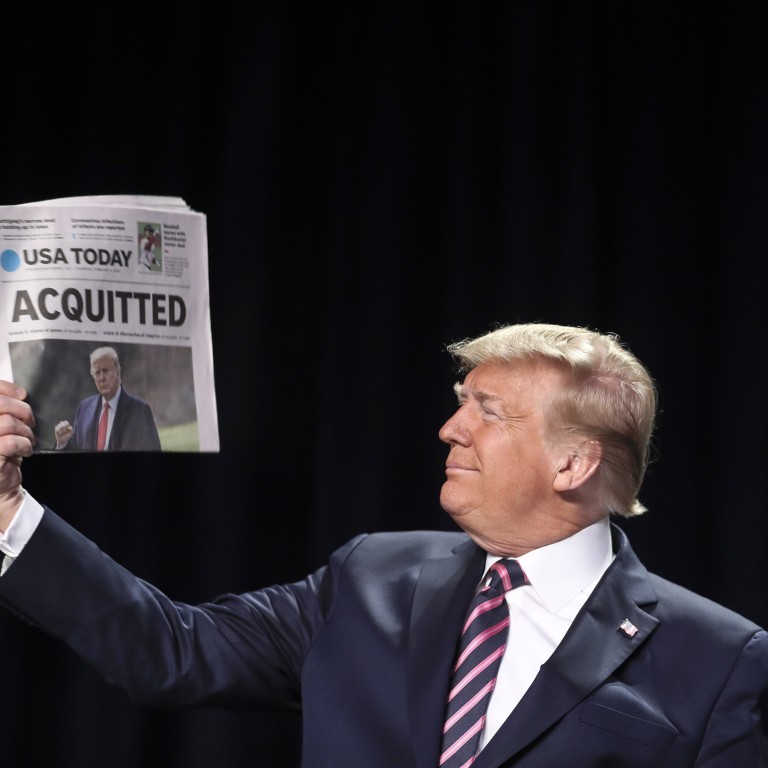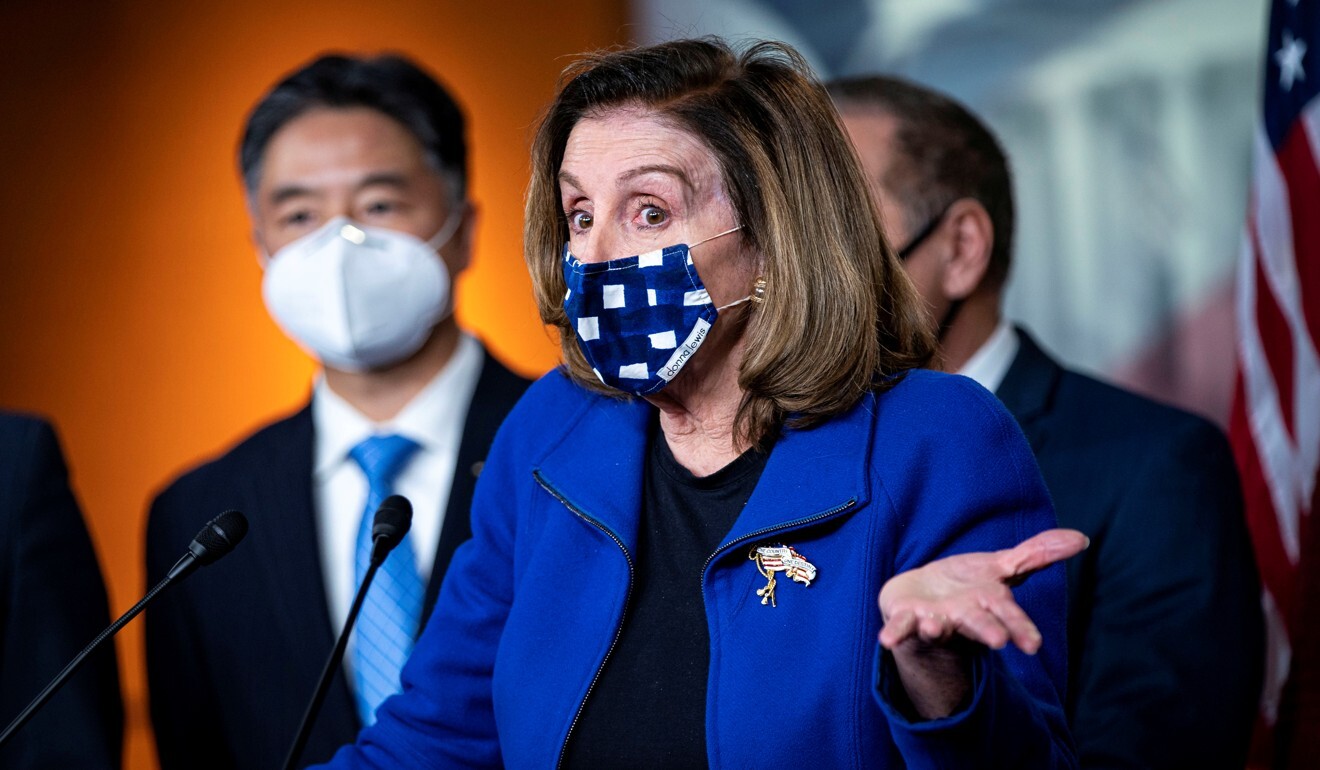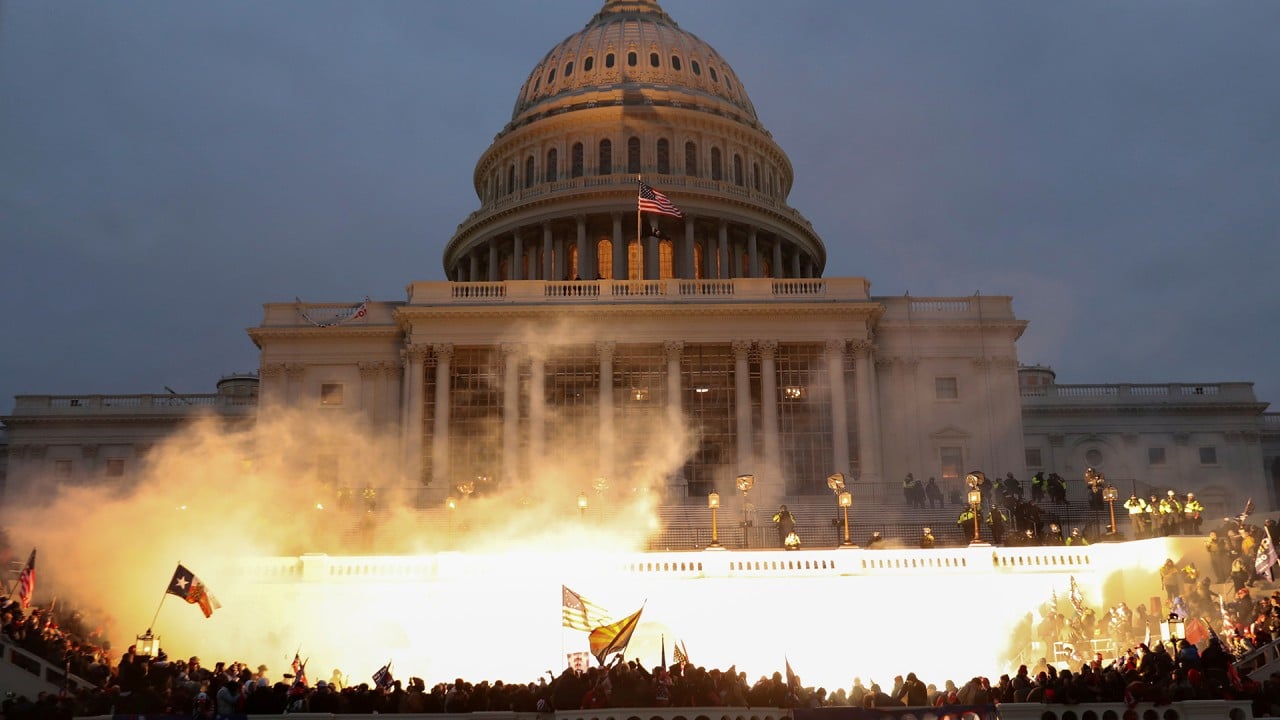
Politico | US Senate acquits Donald Trump of inciting deadly Capitol attack, as impeachment trial concludes
- By a vote of 57-43, with no two-thirds majority, the Senate acquitted the former president for the January 6 violence at the US Capitol
- The vote highlights Trump’s continued grip on the Republican Party, even after he left office under the cloud of the insurrection claims
This story is published in a content partnership with POLITICO. It was originally reported by Kyle Cheney and Andrew Desiderio on politico.com on February 13, 2021.
The verdict was long foreshadowed by Senate Republicans, who said they were unmoved by the House managers’ central argument that Trump’s months-long campaign to subvert the election results, as well as his incendiary remarks to a January 6 crowd, sparked the violent riots.
But the 57-43 vote marked the first time since 1868 that a majority of the Senate voted to convict a president on an impeachment charge. And the seven Republicans who broke ranks are the most to support the conviction of a president from their own party.
The evidence is compelling that President Trump is guilty of inciting an insurrection
“The facts are clear,” said Republican Senator Richard Burr. “The evidence is compelling that President Trump is guilty of inciting an insurrection against a coequal branch of government and that the charge rises to the level of high Crimes and Misdemeanours. Therefore, I have voted to convict.”
The vote highlights Trump’s continued grip on the Republican Party, even after he left office under the cloud of the insurrection and false claims that the election was “stolen” from him. The GOP lawmakers who supported impeachment and conviction in the House and Senate have already faced sharp backlash from constituents and local GOP organisations, further underscoring Trump’s hold on the party.
When the gavel fell, Republican Senators Burr, Lisa Murkowski of Alaska, Ben Sasse of Nebraska, Pat Toomey of Pennsylvania, Bill Cassidy of Louisiana, Susan Collins of Maine and Mitt Romney of Utah joined all Democrats in voting to convict Trump on the House’s single impeachment article.
Politico | Trump impeachment lawyer David Schoen says colleague Bruce Castor has been ‘unfairly maligned’ in trial
“Let the record show, before God, history and the solemn oath that we swear to the constitution, that there was only one correct verdict in this trial: guilty,” said Senate Majority Leader Chuck Schumer.
The trial ended with several unresolved mysteries that may be addressed in the coming weeks and could shed new light on Trump’s conduct. They include an ongoing effort to discern what Trump knew as the violence unfolded, when he knew it, and what actions he took, if any, to quell it.
Those questions dominated the final hours of the trial and nearly resulted in an effort by the House impeachment managers to open the process up to new testimony from witnesses. Several Republicans raised alarms that Trump appeared to resist pleas from allies to call off the rioters, and that he launched a Twitter attack on vice-president Mike Pence while he was being whisked from the Senate chamber.
Senate Democrats were blindsided on Saturday morning when the House managers sought witness testimony, resulting in a majority vote to call witnesses. But the managers later caved and simply allowed a public statement from Representative Jaime Herrera Beutler to be entered into the record. Herrera Beutler earlier said House Minority Leader Kevin McCarthy told her that Trump denied his pleas to forcefully call off the rioters on January 6.
The decision to skip live testimony left those details unconfirmed and poised to emerge after Trump is free of the trial.
Democrats had expressed hope that the evidence and the emotional appeals they made during the trial would move enough Republicans to convict Trump – a result they said was necessary to ward off future violence. To make their case, the House managers played graphic videos, including never-before-seen-footage, showing the horrifying and chaotic nature of the violence at the Capitol on January 6.
Trump’s defence team maintained that putting a former president on trial on impeachment charges was unconstitutional because the primary remedy, removal from office, was no longer operative. But the Senate voted at the start of the trial to uphold the chamber’s authority to have the proceedings, and a conviction would have barred Trump from holding future federal office.
The argument from Trump’s lawyers, a minority view among constitutional experts, provided an avenue for Republicans to coalesce around an acquittal without explicitly defending Trump’s conduct, which most GOP senators have criticised as reckless but not impeachable.
Other Republicans said the House had failed to prove that Trump’s actions and remarks contributed to the violence at the Capitol, and that it did not meet the legal standard for incitement.
Senate GOP Leader Mitch McConnell, who voted to acquit Trump, nevertheless thrashed him in a statement after the trial, accusing him of being responsible for unleashing a “terrorism” on the Capitol.
“They did this because they’d been fed wild falsehoods by the most powerful man on Earth because he was angry he lost an election,” McConnell said. “Many politicians sometimes make overheated comments … but that was different. That’s different from what we saw. This was an intensifying crescendo of conspiracy theories.”
Notably, McConnell also suggested that Trump might still face criminal liability for his actions, contending that Trump “didn’t get away with anything yet.”
Michael van der Veen, one of Trump’s lawyers for the impeachment trial, dismissed McConnell’s criticisms, telling reporters: “We finished the grappling in that room and we slammed it down on the mat on this case. We won. Not guilty.”

But the Democrats and Republicans who supported conviction said the case against Trump was overwhelming. They argued that the rioters heeded his words, acted upon them, repeated them while storming the Capitol and then cited them in court when they faced prosecution.
In addition, senators who voted to punish Trump cited his failure to send help to the Capitol until hours after it became clear that Congress had been overtaken by the violent insurrection and that Pence was in danger and had been evacuated from the Senate chamber.
The House managers and Trump’s lawyers clinched an agreement to avoid witness testimony after both sides agreed to enter a public statement from Herrera Beutler that detailed her account of a phone call between Trump and McCarthy.
Could breakaway Republicans form anti-Trump third party? More than 120 former officials are talking about it
Herrera Beutler, who voted to impeach Trump in the House, pleaded with Pence and other Republicans to publicly tell their story – but by Saturday afternoon, as the acquittal vote neared, no others had stepped forward.
Representative Jaime Herrera Beutler, a Republican from Washington, speaks during a House Appropriations Subcommittee hearing on Capitol Hill.
The House managers said the call was evidence that Trump violated his oath of office and showed no remorse even as he was told that violent rioters have overtaken the building.
Pence was at the Capitol on that day to preside over a joint session to certify Biden’s Electoral College victory. Trump had spent months priming his supporters to believe the election was rigged and stolen, and as his post-election attempts to flip the results repeatedly failed, his efforts became more destabilising.
By late December, Trump was calling for his supporters to descend on the nation’s capital for a “wild” rally. Law enforcement and intelligence officials warned that elements of the rally-goers would likely be armed and present a threat of violence. But that day, Trump addressed the crowd and urged them to march on the Capitol and “fight like hell” to stop the counting of electoral votes – or else risk losing their country.

03:15
World shocked by assault on the US Capitol by radical pro-Trump supporters in Washington
Many of the rioters themselves posted on social media and sent messages since recovered by law enforcement indicating they were awaiting Trump’s signal before acting.
But Trump’s team said he had also urged his supporters to go “peacefully”. They said Trump was initially “horrified” by the violence and took immediate steps to respond to it, but did not provide evidence to support those contentions. The defence team presented for just a few of the 16 hours they were allotted, a move that kept the trial to just a five-day affair.
As they rested their case against Trump on Saturday, the House managers made one final plea to senators.
“Our reputations and our legacy,” said Representative Jamie Raskin the House’s lead impeachment manager, “will be inextricably defined by what we do here”.



